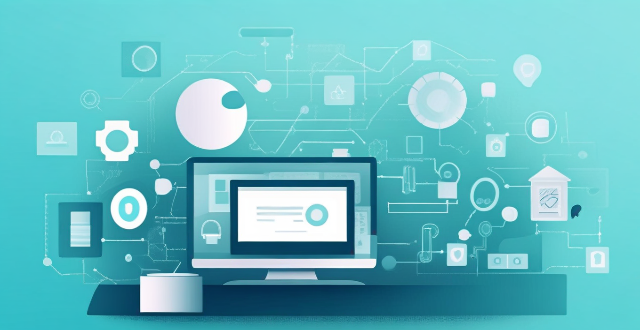The article discusses the impact of digital identity on personal privacy and security. It highlights the risks associated with data collection, cybercrime, surveillance, phishing attacks, social engineering attacks, and ransomware attacks. The article emphasizes the importance of protecting digital identity by using strong passwords, enabling two-factor authentication, and being cautious when sharing sensitive information online.

Impact of Digital Identity on Personal Privacy and Security
Digital identity refers to the information about an individual that is available online. It includes personal details such as name, address, date of birth, social security number, and other sensitive data. With the increasing use of technology in our daily lives, digital identity has become an essential part of our existence. However, it also raises concerns about personal privacy and security. In this article, we will discuss how digital identity impacts personal privacy and security.
Personal Privacy
Personal privacy is the right to control access to one's personal information. Digital identity can have a significant impact on personal privacy in several ways:
Data Collection
One of the most significant impacts of digital identity on personal privacy is data collection. Companies collect vast amounts of data from individuals through their websites, apps, and other online services. This data is often used for targeted advertising or sold to third parties, which can compromise an individual's privacy.
Cybercrime
Another impact of digital identity on personal privacy is cybercrime. Hackers and cybercriminals can steal sensitive information from individuals by hacking into their accounts or using other malicious techniques. This can result in financial loss, identity theft, and other forms of fraud.
Surveillance
Government surveillance is another impact of digital identity on personal privacy. Governments around the world are increasingly monitoring their citizens' online activities, which can lead to violations of privacy rights.
Security
Digital identity also has a significant impact on security. Here are some ways in which digital identity affects security:
Phishing Attacks
Phishing attacks are a common type of cybercrime where hackers send fake emails or messages to trick individuals into revealing their login credentials or other sensitive information. Digital identity plays a crucial role in these attacks as hackers often use stolen identities to gain access to individuals' accounts.
Social Engineering Attacks
Social engineering attacks are another way in which digital identity affects security. In these attacks, hackers use psychological manipulation techniques to trick individuals into revealing their sensitive information. For example, they may pose as a trusted authority figure or use other tactics to gain access to an individual's account.
Ransomware Attacks
Ransomware attacks are becoming increasingly common, where hackers encrypt an individual's files and demand payment in exchange for the decryption key. Digital identity plays a critical role in these attacks as hackers often target individuals with valuable information, such as financial records or confidential documents.
Conclusion
In conclusion, digital identity has a significant impact on personal privacy and security. It is essential to take steps to protect your digital identity by using strong passwords, enabling two-factor authentication, and being cautious when sharing sensitive information online. Additionally, individuals should be aware of the potential risks associated with digital identity and take steps to mitigate them.